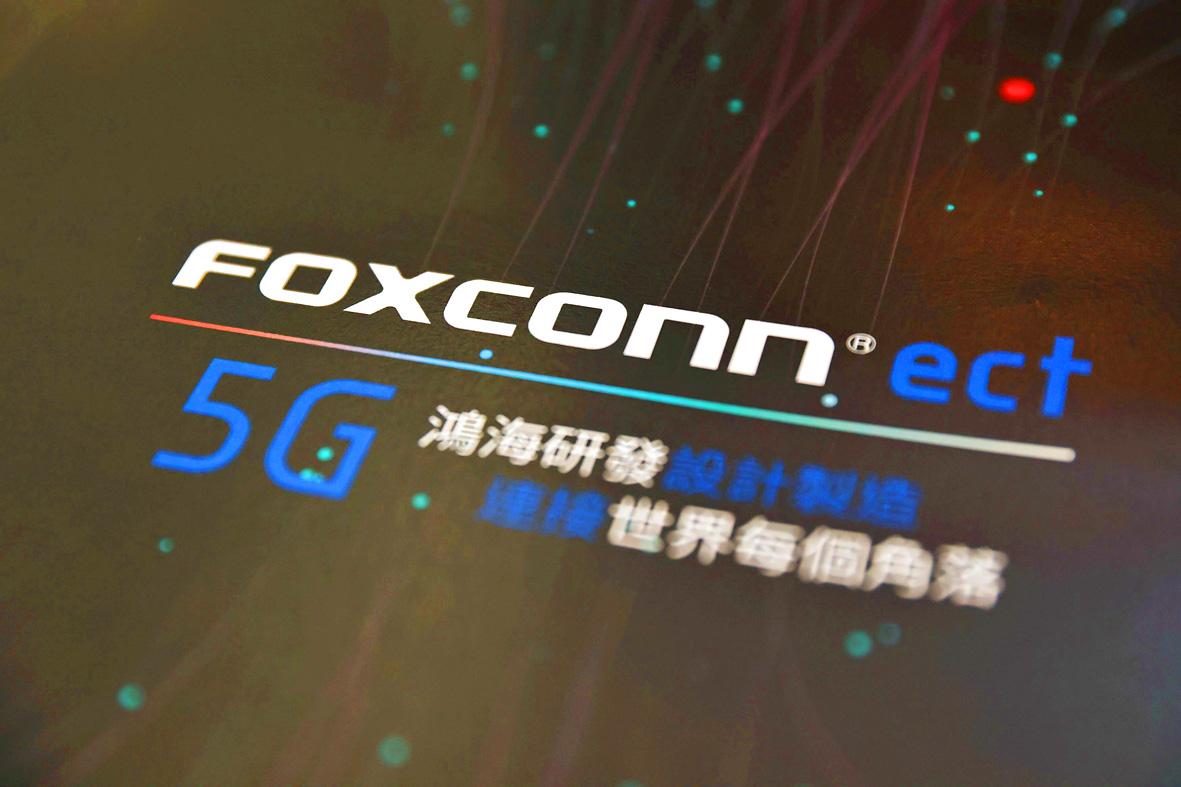Hon Hai Precision Industry Co (鴻海精密) is willing to accept a reduction in state tax credits “in exchange for a flexible business environment in Wisconsin,” the company told US state officials as both sides move closer to reaching a new deal.
Communication between the state and Hon Hai, known internationally as Foxconn Technology Group (富士康科技集團), show both sides are nearing agreement, records obtained on Friday by the Milwaukee Journal Sentinel and Wisconsin State Journal showed.
The state has been pushing Hon Hai to amend the contract to reflect the company’s construction of a smaller facility than the original contract envisioned.

Photo: Reuters
In a statement, the company said that it “is optimistic that an amendment to the WEDC Agreement is within reach.”
Wisconsin Economic Development Corp (WEDC) this fall determined Hon Hai was not eligible for tax credits this year for hiring and investments made last year.
The agency also said that Hon Hai was not in compliance with the agreement because of changes in plans for the massive complex under construction in southeast Wisconsin near the Illinois border.
The company challenged the department’s decision.
In a Nov. 23 letter from Hon Hai attorney Robert Berry to WEDC chief legal officer Jennifer Campbell, the company listed a number of different objectives regarding an amendment to the agreement.
Hon Hai would like the agreement to “lower the taxpayer liability in exchange for a flexible business environment in Wisconsin,” the letter said.
The company wants the contract to reflect that Hon Hai reacts “to customer demands and market conditions that at times dictate what we manufacture.”
It also wants “bipartisan support from other governing entities pursuant to an agreement endorsed by both the governor and Foxconn.”
It wants to sign the agreement “in a timely manner that doesn’t deter [Foxconn’s] immediate opportunities to bring more investment and business to Wisconsin.”
In response, WEDC chief executive officer Missy Hughes sent a letter to Hon Hai board chairman Jay Lee (李傑) and encouraged the company to share its “investment projections with the WEDC.”
Once the department has that information “we will work rapidly to calculate and outline the state’s potential incentive range,” she said.
Berry responded with an e-mail, saying that he was “confident” the two sides “are on the brink of coming to acceptable terms that will lead to an exciting future for our smart manufacturing park in Mount Pleasant.”
In 2017, the Republican-controlled state legislature passed a bill signed by then-Wisconsin governor Scott Walker that would provide up to US$2.85 billion in tax credits over 15 years if the company met certain hiring and capital investment thresholds.
Hon Hai has yet to receive any state dollars, while the project in Mount Pleasant has already cost the state nearly US$237 million in state and local road improvements, sales and use tax exemptions, grants to local governments, and for worker training and employment.

Intel Corp chief executive officer Lip-Bu Tan (陳立武) is expected to meet with Taiwanese suppliers next month in conjunction with the opening of the Computex Taipei trade show, supply chain sources said on Monday. The visit, the first for Tan to Taiwan since assuming his new post last month, would be aimed at enhancing Intel’s ties with suppliers in Taiwan as he attempts to help turn around the struggling US chipmaker, the sources said. Tan is to hold a banquet to celebrate Intel’s 40-year presence in Taiwan before Computex opens on May 20 and invite dozens of Taiwanese suppliers to exchange views

Application-specific integrated circuit designer Faraday Technology Corp (智原) yesterday said that although revenue this quarter would decline 30 percent from last quarter, it retained its full-year forecast of revenue growth of 100 percent. The company attributed the quarterly drop to a slowdown in customers’ production of chips using Faraday’s advanced packaging technology. The company is still confident about its revenue growth this year, given its strong “design-win” — or the projects it won to help customers design their chips, Faraday president Steve Wang (王國雍) told an online earnings conference. “The design-win this year is better than we expected. We believe we will win

Quanta Computer Inc (廣達) chairman Barry Lam (林百里) is expected to share his views about the artificial intelligence (AI) industry’s prospects during his speech at the company’s 37th anniversary ceremony, as AI servers have become a new growth engine for the equipment manufacturing service provider. Lam’s speech is much anticipated, as Quanta has risen as one of the world’s major AI server suppliers. The company reported a 30 percent year-on-year growth in consolidated revenue to NT$1.41 trillion (US$43.35 billion) last year, thanks to fast-growing demand for servers, especially those with AI capabilities. The company told investors in November last year that

Power supply and electronic components maker Delta Electronics Inc (台達電) yesterday said it plans to ship its new 1 megawatt charging systems for electric trucks and buses in the first half of next year at the earliest. The new charging piles, which deliver up to 1 megawatt of charging power, are designed for heavy-duty electric vehicles, and support a maximum current of 1,500 amperes and output of 1,250 volts, Delta said in a news release. “If everything goes smoothly, we could begin shipping those new charging systems as early as in the first half of next year,” a company official said. The new